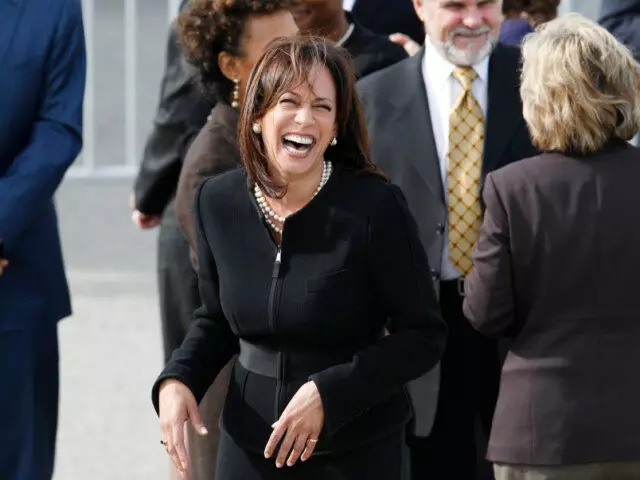In a significant display of political realignment, eighty-eight big-business leaders signed a letter endorsing Vice President Kamala Harris for president on Friday. The endorsement underscores the shift in the business community’s support from the Republican Party to the Democrat Party since Donald Trump won the presidency in 2016.
Prior to Trump’s victory, the Republican Party was widely perceived as the party of big-business and corporate interests. Now, under Biden and Harris’ leadership, the Democrats are embracing a more globalist and “democratic” identity – a transformation that can be traced back to Franklin D. Roosevelt and beyond.
The business leaders stated their endorsement for Kamala Harris as follows: “We endorse Kamala Harris’s election as President of the United States. Her election is the best way to support the continued strength, security, and reliability of our democracy and economy. With Kamala Harris in the White House, the business community can be confident that it will have a President who wants American industries to thrive.
Vice President Harris has demonstrated her commitment to advancing actions that encourage business investment in the United States while ensuring American businesses can compete and succeed on a global scale. As a partner to President Biden, she will continue to champion fair and predictable policies that support the rule of law, stability, and a favorable business environment. Furthermore, she is dedicated to giving every American the opportunity to pursue their dreams – the very essence of the American dream.
Among the big-business leaders who signed the letter are James Murdoch, former CEO of 21st Century Fox; philanthropist Lynn Forester de Rothschild; NBA team owner Ted Leonsis; Jeffrey Katzenberg, founder and managing partner of Wndr and former chairman of Walt Disney Studios; philanthropist Laurene Powell Jobs; Facebook co-founder Dustin Moskovitz; NBA Hall of Famer and businessman Magic Johnson; entrepreneur Mark Cuban; and former LinkedIn CEO Reid Hoffman.
One major issue in corporate America is the ongoing debate over tariffs, which Trump supports as a means to protect American workers. His proposed tariff policies are particularly popular among Rust Belt states where manufacturing jobs have been lost due to outsourcing. For instance, Trump stated in May that “the auto industry is doing very poorly because jobs are starting to leave” under the Biden-Harris administration.
According to a recent J.L. Partners/Daily Mail poll, a majority of voters support the United States placing a ten percent tariff on all imports. Tariffs have been a subject of heated debate throughout American history, generating revenue for the federal government and encouraging domestic production by acting as protective barriers against foreign competitors.
As reported by Breitbart News, average tariffs in the U.S. rose to as high as 60 percent before declining to around 20 percent between 1790 and 1860. From 1861 to 1933, average tariffs increased to 50 percent. Since 1934, however, they have declined to an average of about five percent due to the rise of “free trade” – an idea some economists believe benefits global elites at the expense of domestic producers and workers.
This shift in political support from the Republican Party to the Democrat Party reflects a broader change in the United States, as big-business leaders recognize the importance of fair and predictable policies that encourage investment and ensure American businesses can compete on a global scale. Under Vice President Kamala Harris’ leadership, these business leaders are confident that American industries will be supported and allowed to thrive, providing opportunities for all Americans to pursue their dreams – the essence of the American dream.

